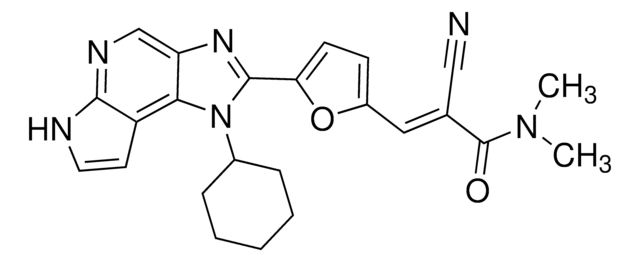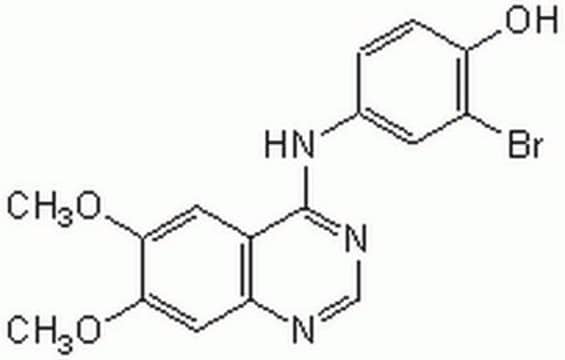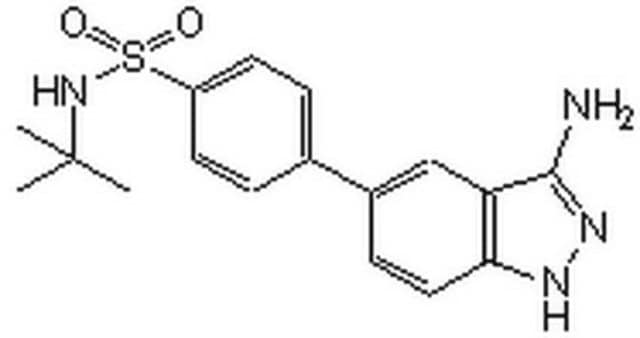420097
JAK Inhibitor I
InSolution, ≥98%
Sinónimos:
InSolution JAK Inhibitor I, 2-(1,1-Dimethylethyl)-9-fluoro-3,6-dihydro-7H-benz[h]-imidaz[4,5-f]isoquinolin-7-one, P6, Pyridone 6, DBI, JAK1 Inhibitor I, JAK2 Inhibitor I, JAK3 Inhibitor X
About This Item
Productos recomendados
Quality Level
assay
≥98% (HPLC)
form
liquid
manufacturer/tradename
Calbiochem®
storage condition
OK to freeze
desiccated (hygroscopic)
protect from light
shipped in
wet ice
storage temp.
2-8°C
SMILES string
Fc1cc2c(c3[nH]c(nc3c4c2c(ncc4)O)C(C)(C)C)cc1
InChI
1S/C18H16FN3O/c1-18(2,3)17-21-14-10-5-4-9(19)8-12(10)13-11(15(14)22-17)6-7-20-16(13)23/h4-8H,1-3H3,(H,20,23)(H,21,22)
InChI key
VNDWQCSOSCCWIP-UHFFFAOYSA-N
General description
Biochem/physiol Actions
murine JAK1
Packaging
Warning
Physical form
Reconstitution
Other Notes
Legal Information
Storage Class
10 - Combustible liquids
wgk_germany
WGK 2
flash_point_f
188.6 °F - closed cup - (Dimethylsulfoxide)
flash_point_c
87 °C - closed cup - (Dimethylsulfoxide)
Certificados de análisis (COA)
Busque Certificados de análisis (COA) introduciendo el número de lote del producto. Los números de lote se encuentran en la etiqueta del producto después de las palabras «Lot» o «Batch»
¿Ya tiene este producto?
Encuentre la documentación para los productos que ha comprado recientemente en la Biblioteca de documentos.
Nuestro equipo de científicos tiene experiencia en todas las áreas de investigación: Ciencias de la vida, Ciencia de los materiales, Síntesis química, Cromatografía, Analítica y muchas otras.
Póngase en contacto con el Servicio técnico








